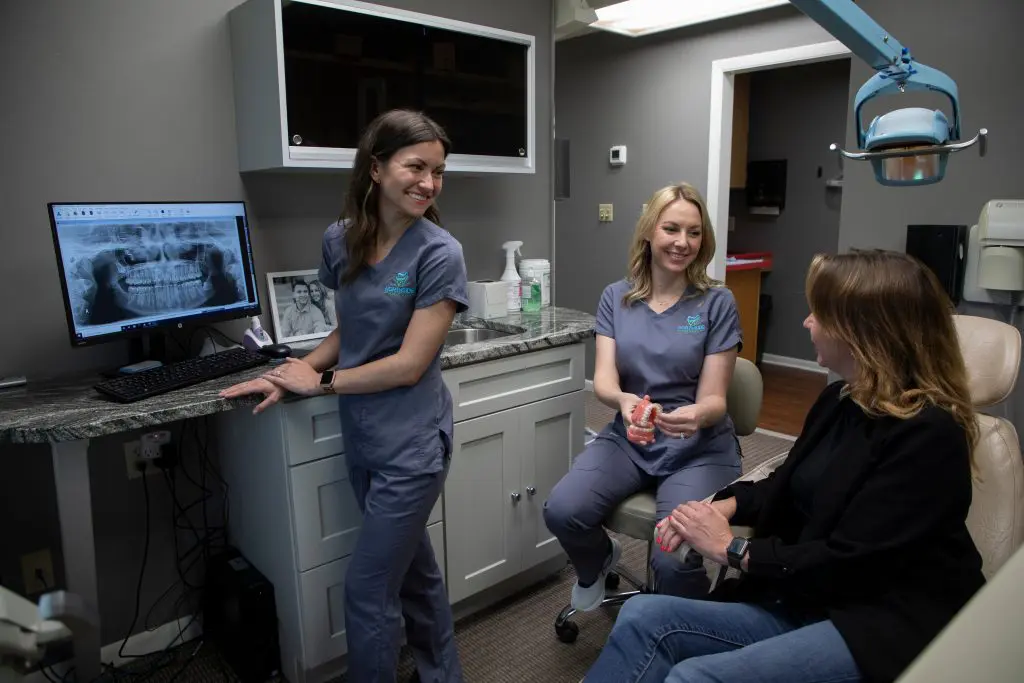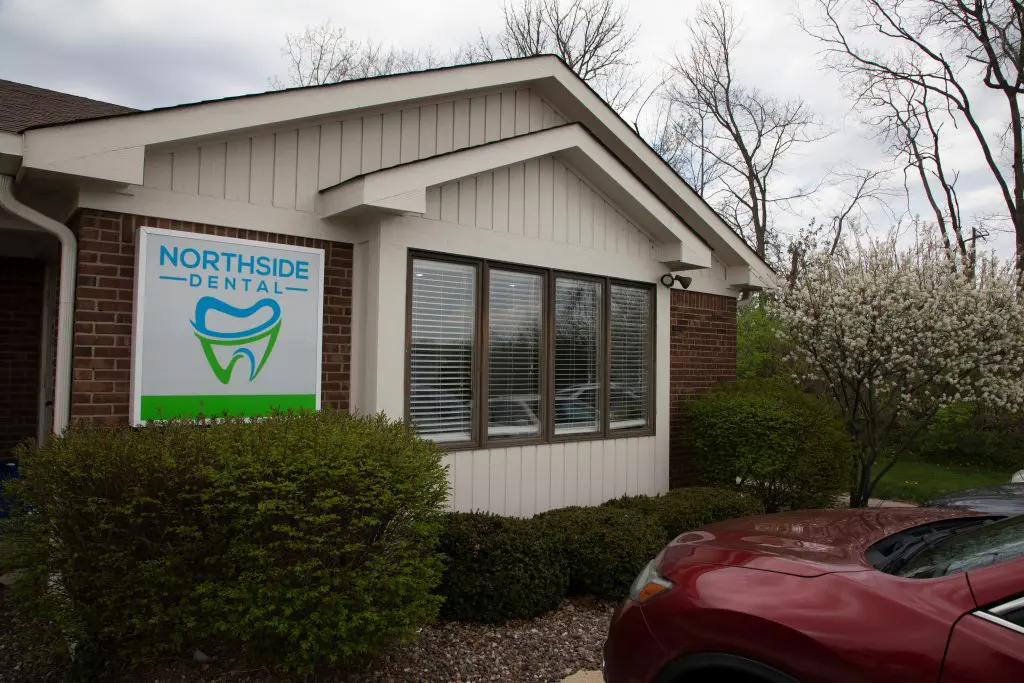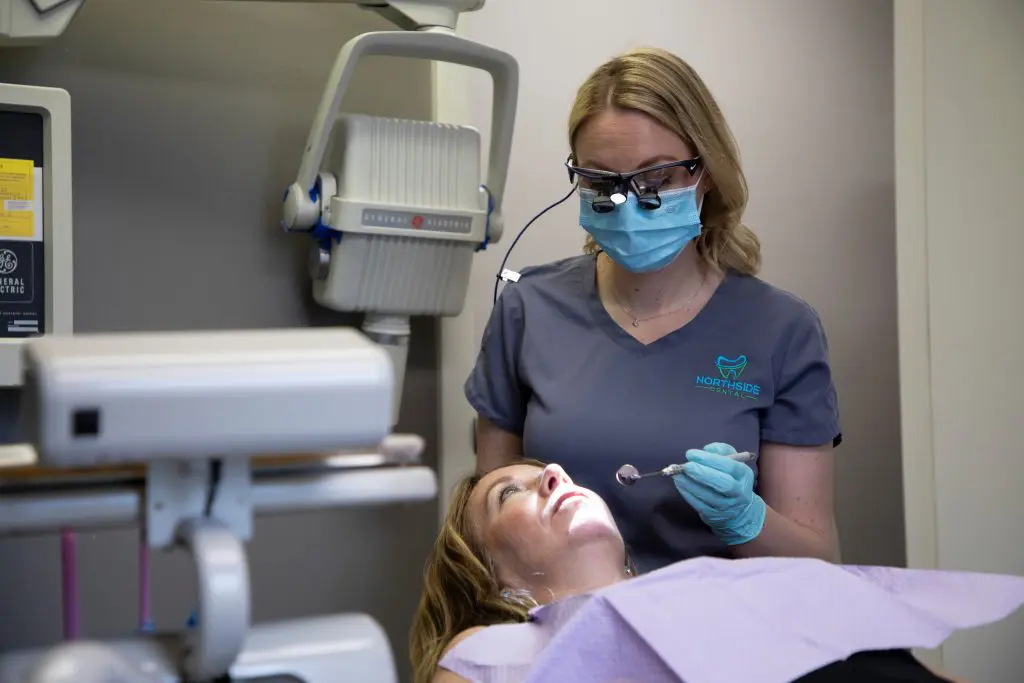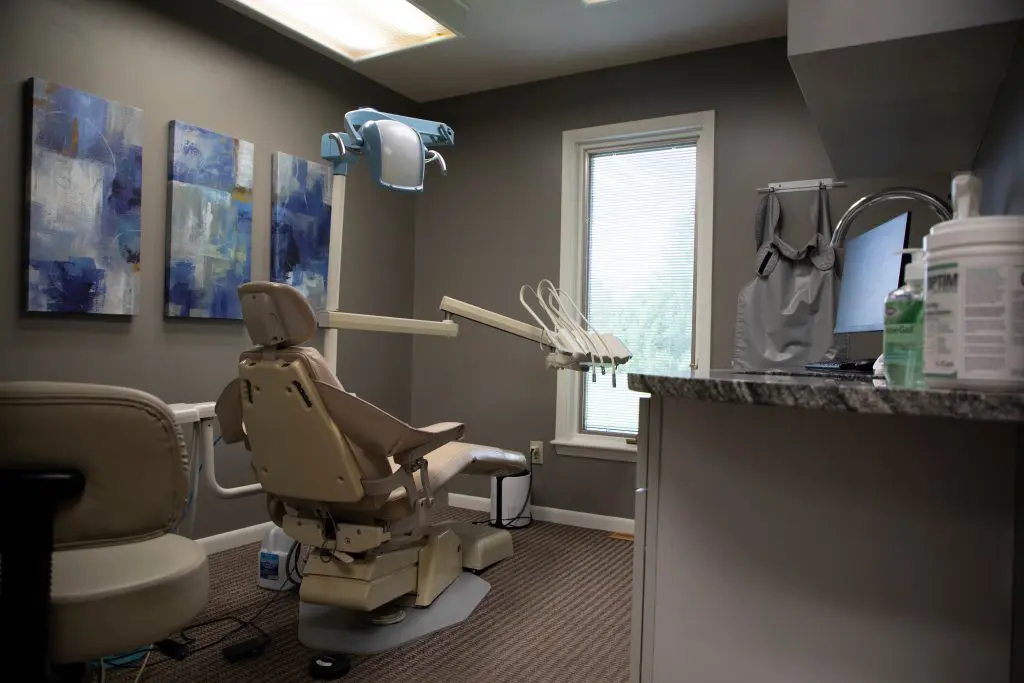Bruxism and temporomandibular joint disorder, often called TMJ, are related conditions with similar symptoms that both affect your jaw
Bruxism and temporomandibular joint disorder, often called TMJ, are related conditions with similar symptoms that both affect your jaw. If you are having symptoms such as upper jaw pain, lower jaw pain, or headaches, it might be hard to determine whether you are suffering from bruxism or TMJ. A mouth guard or night guard for TMJ and bruxism is considered a reliable solution to ease the associated pain.
Bruxism is a condition where you grind and clench your teeth, usually at night. TMJ is a dysfunction of the temporomandibular joint, which connects your jaw to your skull.
If you think you might have bruxism or TMJ, refrain from diagnosing it yourself. Instead, please visit Northside Dental to receive an accurate evaluation before proceeding with any treatment. These two conditions can have similar symptoms, making it easy to mistake one for the other.
The conscientious, thoughtful, and patient team at Northside Dental share a common philosophy and that is to treat you as a person first, as a patient second. We embrace your unique values on your lifestyle, your overall health, your smile, comfort, time, anxiety levels, and your budget. We are deliberate and quite detail conscious in developing and implementing your personalized treatment plans. We also consider our entire staff as contributing players on your overall health program team. Call us today at 317-848-9838 to schedule your appointment or stop in at 15026 Greyhound Ct. Carmel, IN 46032.
Refer a friend
Examination and Cleaning
Cosmetic Services
Emergency Dentistry
The Types of TMJ Problems
TMJ disorders typically fall into three categories:
- Myogenous TMJ problems are the most common type of TMD, accounting for over 80% of the cases. Myogenous TMJ disorders include muscle related pain and result in discomfort in your jaw, temple, neck, or shoulder muscles, especially when you wake up.
- TMJ disorders can also involve jaw joint generated pain. This is from internal derangement of the TMJ, which can include a dislocated jaw, displaced disc within the TMJ or an injury to the condyles, the rounded ends of the lower jaw that fit up into the jaw joint.
- Another type of TMJ problem involves degenerative joint disease, such as osteoarthritis or rheumatoid arthritis.
Northside Dental can treat most TMJ problems. On a rare occasion, internal derangements and degenerative joint disease may require the additional involvement of a physician.
TMJ Treatment and a Custom Fitted Nightguard
If you are experiencing symptoms of prolonged pain or sensitivity you may require treatment for your TMJ problem. In a few cases, your bite may be compromised and must be rebuilt with crowns and veneers. In some cases, surgery or orthodontics may be the best treatment.
For most cases, the TMJ problem can be treated with a specially designed, plastic mouth guard that is worn over your teeth at night.
It is important to realize that you will get far better results when having a guard customized by Northside Dental for your situation. One size fits all retail nightguards may not solve the problem and can even make it worse. This is because everyone’s TMD is different. You may be a pure grinder, or clench and do not grind, or grind sideways and clench just a little, or clench and grind both, etc. A nightguard should really be custom designed by Northside Dental to treat your specific type of TMD.
TMJ Problems in Women versus Men
TMJ pain is about four times more common in women than it is in men. Women tend to report more TMD symptoms and often have associated headache and jaw clenching problems, sometimes accompanied by grinding or bruxism. Men report less pain and discomfort, but teeth grinding is more evident in men.
The Diagnosis of TMD
TMJ problems can be diagnosed through a detailed examination by Northside Dental. We will look for evidence of TMD on your teeth, mouth, gums, and tongue, your palpate, the muscles of the head, neck, and shoulders to determine the level of tenderness. We will measure the lower jaw range of motion, conduct a scan of the jaw joints if necessary and consider performing diagnostic imaging, MRI, or cone-beam x-rays.
Treatment of Mild TMJ Problems
TMJ pain can sometimes be related to a specific event and go away without any treatment. Dental clinicians hypothesize that stress plays a huge role here. During times of high stress your body may react by grinding or clenching your teeth at night. If the stress diminishes, the clenching and grinding may decrease as well.
If you occasionally experience jaw joint problems, several self-care practices might be enough to control the problem. Some examples include stress management, yoga, meditation, biofeedback, gentle stretching and massaging of your jaw joint muscles, the application of heat or ice packs, avoiding chewing gum, and not opening your mouth excessively wide.
Common Causes of TMD and Link to Stress
TMJ problems in a minority of cases can be caused by a blow to your face or arthritis of your jaw joint. Most often, TMJ pain is related to a genetic predisposition and stress level. TMD is more likely to occur in high stress professions when the individual is experiencing a high level of stress. This stress leads to teeth grinding and clenching and the associated head, neck, and shoulder pain.
In an exceedingly small percentage of cases, TMJ can be the result of a problem with your bite or occlusion. This could be a result of the teeth simply growing into a suboptimal position, thereby affecting your bite, or because of braces or orthodontics.
Your Comfort and Your Care
Our preventative point of view is the biggest benefit when choosing Northside Dental. We focus on making your appointments quick, effective, and efficient. Our common office goal is quite simple. We want to be the health partner you trust for all your dental needs. We look forward to helping you regain a good night’s sleep and improving your daily life. We also want to help you maintain your smile and assist you with good preventative care. Call us today at 317-848-9838 to schedule your appointment or stop in at 15026 Greyhound Ct. Carmel, IN 46032.




